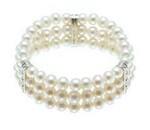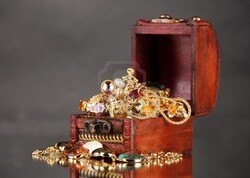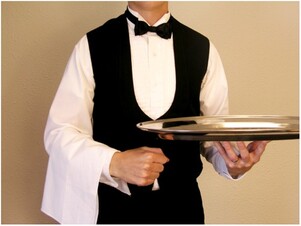-
Par 1 euro Lycée Leclerc dans The Fall of France : commentaires sur un article de Janine Di Giovani dans Newsweek le 24 Mars 2014 à 14:11
05/03/2014
Do readers always keep their critical thinking?
Article written by Lehmann Anne-Laure, 1ES1
Hey guys! Today I'm going to present you a recent article called "The Fall of France" written by Janine di Giovanni, a journalist from Newsweek magazine. At first, we'll see if that magazine is usually considered as a reliable source. Secondly, I'll sum up this article so as to understand its context. Then, we'll focus on mistakes that the journalist made while writing it. Finally, this will bring us to a conclusion: Do readers always keep their critical thinking when they get some information?
Newsweek is a weekly American magazine which spreads general information and was founded in 1933. We can say that it is a very famous magazine as it was the second biggest weekly American magazine in 2004. Thus, we can infer that it might be a reliable source and usually people don't question its information!
This article depicts the education system and the economic and political situation in France. Actually, according to the journalist, the drawbacks are dominating the assets in this country. It says that France suffers of a "brain drain" since Louis XIV because young graduates see no future, they can't "build, create and thrive". Moreover, France is wasting money in vain things such as appointments by a physical therapist for new mothers, or paying the unemployed persons too long and too much: "all this handing out of money left the state bankrupt". France is indeed described as a "profligate state", unemployment figure, taxes, and the price of everyday living are high. Finally, France is underrepresented and isn't open to the world: "The French don't like to speak English". However, France has the best agricultural industry in Europe, a strong tourist industry, an international business of luxury good, an excellent health care, and at last, the French are good atbuilding rails and good at aeronautics.
Even though Newsweek might be a reliable source, we can still notice errors in this article! Firstly, some arguments are false as regards the family policy. Unfortunately, there are no free diapers and free day-care in France! Furthermore, families don't get the nappies free and don’t have a free childcare in their neighbourhood! But to my mind, what beats everything is: "A half liter of milk in Paris, for instance, costs nearly $4 - the price of a gallon in an American store." I even think I don't have to justify that this assertion is false, you can deduce it by yourself! If you are curious, I've found more criticisms about this article on a French women web magazine "TerraFemina":
http://www.terrafemina.com/culture/medias/articles/35655-janine-di-giovanni-10-cliches-de-la-journaliste-de-newsweek-sur-la-france-demontes.html
As the article is aimed at American readers, they may not question the reliability of the information. In this precise case, we can also wonder why the journalist wants her son to make his life in France! Only out of pity? Certainly not!
In the end, we can deduce that the readers should never forget to use their critical thinking! This article is the perfect example to show you may read a biased article even in a reliable source!
 votre commentaire
votre commentaire
-
Par 1 euro Lycée Leclerc dans The Fall of France : commentaires sur un article de Janine Di Giovani dans Newsweek le 24 Mars 2014 à 12:22
“The Fall of France” Topic: Means and places of power – the power of the media
By Mathilde Winniger 1ère ES1
We studied an article taken from Newsweek an American quality news magazine which is the second-largest news weekly magazine in the U.S., published in four English language editions and 12 global editions written in the language of the circulation region. This article was written by Janine Di Giovanni and published on January 03rd 2014. It deals with "the fall of France" as the title indicates it.
First of all, the journalist talks about the brain drain.She refers to the historical context of the French Huguenots who left for other countries (mainly the USA) in the XVIIth century. Since 2012, taxes and social security contributions have skyrocketed; therefore there is a new brain drain. Moreover, there is no French word for “entrepreneurs”. After that, she highlights that the French minister of finance is hated by many.
The French have some assets, all the same . But, young graduates leave France for London, the unemployment figures and the price of basic products have increased tremendously. She compares the accommodation in London and in Paris; Paris seems to be more expensive than London. On the other hand, there are subsidies for a generous family policy. She emphasizes the French unemployment and retirement money. Then, she criticizes the French as being self-centred, bad at languages and reluctant to join the global village. The French education system doesn’t favour visionaries. Nevertheless, at the end of the article, the journalist wants her son to build his future in France…Indeed, this article seems to be a joke... it has countless obvious mistakes for anyone who knows even a little bit France. Newsweek needs to do a fact-checking here if it wants to be consistent in promoting journalistic standards of excellence and rigor.
For example, the French have to pay 75% of taxes only on the amount over a million euros, i.e when they earn more than one million€ a year! Furthermore, the French equivalent for “entrepreneurs” is “entrepreneurs” as it’s basically.... a French word. Paris hasn’t beaten London which is the second of Europe’s most expensive city whereas Paris ranks 12th. At last, half a liter of milk is much cheaper than 4$!
Most of the information given aren’t true or have many mistakes; we can also say that the article is biased. She should have entitled his article "the fall of Newsweek" as it was usually a reliable and unbiased source! Actually, the journalist gives mainly a negative point of view of France She is entitled to do so as long as her examples are real ones. The examples given are either false or she quite exaggerates the facts.Finally, she wants her son to make his life in France, so the conclusion is not logical!Why would a mother want a son to earn his living in a country with so many negative aspects??
Thus, this article created many indignant reactions all over the world. As the article is aimed at English speaking readers all around the world, they may not question the reliability of the information. That’s why, to conclude, the readers must always keep a critical mind and not a blind trust in newspapers or magazines. Be distrustful and open-minded…don’t belong to a flock of sheep!
Here's the link to the Newsweek page
http://www.newsweek.com/fall-france-225368
 votre commentaire
votre commentaire
-
A diary of a master on a everyday event (a valuable object has disappeared)
By Zerez Sandra
Dear diary: Friday, 18 November 1896
Today, I lost my bracelet, the bracelet my mother gave to me as a wedding gift, the servants looked everywhere for it, but it seems that it has vanished, I am so disappointed because it was one of the most valuable objects I own , I don’t know where it could be.The last time I saw it, was before my bath, George suggested that one of the valets took it, I think it’s absurd ! I trust them, George said I was naïve to think that... Anyway, I guess we will see what will happen! And oh my Gosh! I forgot to mention, our baby girl Catherine said her first word today, and George told me that the new footman is arriving soon! I really hope he will do a better job than the last one!

Dear diary: Sunday, 20 November 1896
My bracelet has been found! And George was right! It was one of the maids that stole it! I am so mad! That’s a big disappointment, I fired her immediately! And I told all the ladies in the club not to hire her, what an embarrassment... However, there are some good news too, the new footman is doing an amazing job, George is very pleased and we decided that we were going to spend our Christmas vacation in Paris!


 votre commentaire
votre commentaire
-
A valuable object has disappeared
By Anaëlle Barbat and Aude Schlatter
Monday, January 6th 1914
Dear Diary,
I feel so stressed today. Something very important has disappeared : the lady's favourite ring. It's such a beautiful jewel... Made in gold, with a wonderful pearl in the middle. Of course, you know, I would never steal such a valuable object... But, dear Diary, I did it. Yesterday, the lady of the house told me to clean her bedroom. It's only to me, her personal servant, that she asks something so delicate. The lady and her husband trust me... Oh, if they knew... The jewellery box was so attractive when I saw it on the bedside table next to the wardrobe. The colour of the box was just... Wonderful. Dark red. My favourite colour. And, as I saw this pretty thing, someone in my head encouraged me to open the box. I did it... And then I've seen the most beautiful thing in my life : ten necklaces, hundreds of silver and gold earrings... And as you guess, there were the pearl ring. Understand me, dear Diary ! Never in my life, have I possessed such valuables jewelleries. I wanted to feel desirable and pretty to the men's eyes. And, when the ring was in my pocket, I wasn't worried : I thought that Mrs Pocklington, the lady of the house, wouldn't see that something had disappeared in her jewellery box. But, I was so dumb to convince myself of that ! Because now, Mrs Pocklington is looking everywhere for her ring and I saw in her eyes, she knows I'm the culprit...

 votre commentaire
votre commentaire
-
A servant decides to quit …
By Gabriel Sutter 1ère ES1
My dear diary, today we are the 13th of December, I learned by James (one of the footman) that the Butler has decided to quit the house.
Since I wrote the last time, many things have happened. Indeed, some objects have disappeared and theymust have been stolen. The news came when I was being asked by the Master in his room, and all the staff was very surprised! “But, I don’t understand, who could do such a thing?!” James asked.
He’s quite young but I think he’s made for this job because he does it well (as the Butler told me).
In two days, the situation changed very quickly. It appeared that there were other robberies in the village, the police thought they were linked and so do I. Everywhere, we put signs where it is written “DO NOT FORGET TO LOCK DOORS AND WINDOWS” in case people were thinking they lived in a good world with only well intentioned people.
The Butler organized two meetings with all the staff. He said that if someone knows something about what has happened so far, he had to refer to the housekeeper or to the Butler himself. The climate was so oppressive; everyone was upset we were told to remain on the estate premises until the culprit was discovered.
The police revealed that it was, definitly, somebody of the house, and it seemed that the Butler himself carried all the shame brought to the house. He also decided to quit be cause he “didn’t preserve the honor of the Pennywinckle and the house”. I keep you informed if there is any news.

 votre commentaire
votre commentaire







